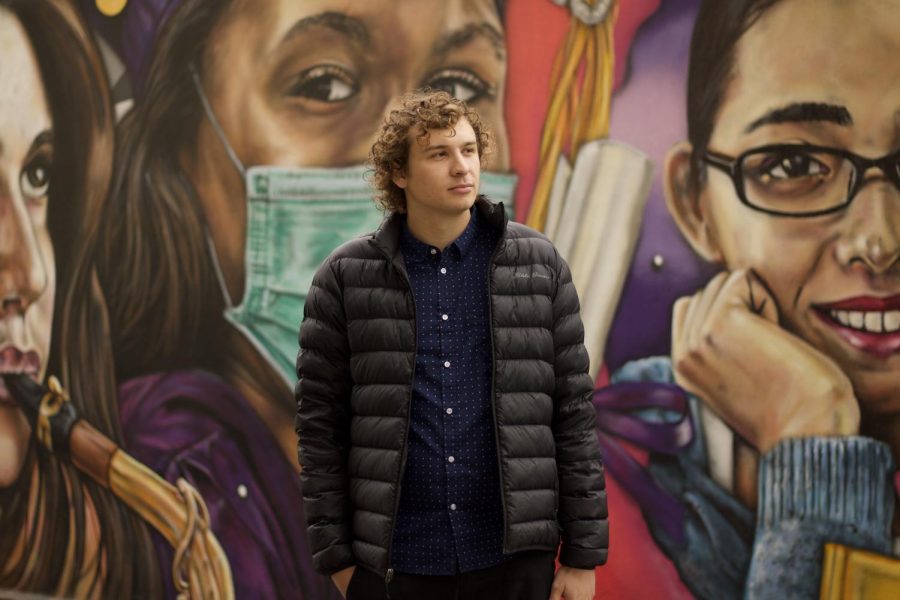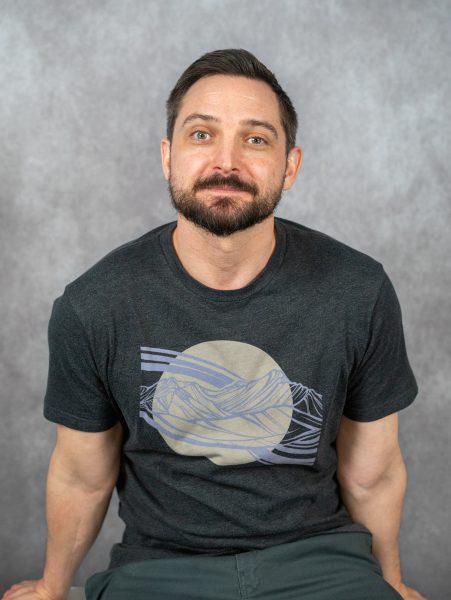Tate Barend challenged himself with Advanced Placement classes at Petaluma High School, but he didn’t feel prepared for college. Reading and writing were particularly hard for him, due to his dyslexia.
It wasn’t until he enrolled in Santa Rosa Junior College and obtained accommodations by the Disability Resources Department that he gained the confidence to be a well-rounded student.
“Just giving me that extra space and time on tests that utilize the writing center really allowed me to refine the skills I needed to work at college level. It opened all the doors I knew I could get into,” Barend said.
He enrolled at the University of California, Berkeley after his time at SRJC and said he owes an “A” he got on one of his final papers to his junior college experience.
Now the former SRJC student is giving back to the disabled community by expanding his self-created scholarship, Lift-Off, to help high school students with learning disabilities across Sonoma County get into college.
Barend began the scholarship when he was 18 with $500 of his own money, after graduating from high school. Now that he has graduated from Berkeley, Barend is partnering with the 10,000 Degrees scholarship organization to expand its reach to all Sonoma County high school students with learning disabilities.
“Ultimately the goal is to get any Sonoma or Marin County student with a learning disability who wants to get to college to be able to apply for the scholarship every year,” Barend said.
In his video about the scholarship, Barend said dyslexic students have a 34% chance of graduating college. Despite many dyslexic people having high IQs, it’s easy for them to get bogged down by the stereotype that they don’t have the aptitude for college.
Barend said the stigma impacted him the most in high school when he took Advanced Placement classes side-by-side with IEP, Individualized Education Program, or study skills classes for disabled students.
“It was like AP classes are going to get you to college, but skills class was just to get you out of high school and not [provide] the tools to get into college,” Barend said, “and once you’re out of high school, the government and education system doesn’t really have to deal with you anymore.”
He said the stigma really hit home when he realized he was the only high school student with a learning disability to receive class awards.
Most scholarships are based on high GPAs or test scores, two measures that are a source of struggle for students with disabilities, he said. So even though they work as hard or harder than students without disabilities, they rarely get the recognition for it.
The scholarship began with one student named Ben, who was Barend’s former classmate at Petaluma High School and is now an alumnus of San Francisco State.
“I remember getting an email after giving out the award and his family was so thrilled and in awe that their son was actually recognized for his achievements and the work he put in.”
Ben’s family members were so grateful they offered to fund the scholarship to keep it going.
Now Barend wants to expand the scholarship. By partnering with 10,000 degrees, Barend is not only getting his scholarship to more students but also the support disabled students need.
“They have more than a financial arm,” Barend said. “They have a Peer Fellows situation, which means every recipient will essentially have someone to work with them through college, and they’ll be able to provide support when the student comes to their next hurdle.”
The scholarship isn’t just about supporting individual students, he said, it’s also about opening the conversation about students with disabilities, which keeps getting pushed to the backburner.
“That’s why 10,000 Degrees works for me because the scholarship has never really been about the money. It’s always been about recognizing students with learning disabilities,” Barend said.
Creating an open dialogue about students with disabilities will help initiate change so schools will start to welcome what these students can offer a classroom.
“I think there’s a lot of innate ability and unique skills that each of them possesses that maybe traditional education doesn’t allow them to show,” Barend said.





Tate Barend • May 16, 2022 at 1:44 pm
If anyone has any questions about the Lift Off Scholarship you can reach me at [email protected]
Thank you Michael for the great article!